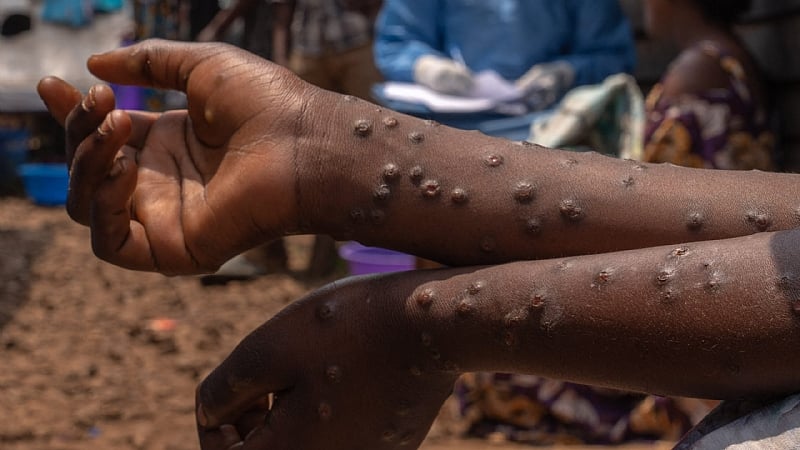The Tema Metropolitan Health Directorate in Ghana announced the full recovery and discharge of a patient diagnosed with Mpox (formerly known as Monkeypox). This positive development signifies the effectiveness of the implemented protocols and the resilience of the healthcare system in managing the disease. The patient, whose case was confirmed on June 21, 2025, received appropriate medical care and was subsequently isolated to prevent further transmission. Following the strict adherence to established protocols, the individual has now fully recovered and poses no further risk to public health. This success underscores the importance of early detection, prompt isolation, and comprehensive medical care in combating the spread of Mpox.
The Tema Metropolitan Health Directorate implemented a robust contact tracing and monitoring system to contain the potential spread of the virus. All individuals who had contact with the patient, including those at the health facility, workplace, and residence, were closely monitored for any signs or symptoms of the disease. The rigorous follow-up ensured that no secondary cases arose from the initial infection. The meticulous tracking and monitoring of contacts exemplify the proactive approach adopted by the health authorities to prevent a wider outbreak. The success in preventing further transmission highlights the efficacy of contact tracing as a critical tool in disease control.
The proactive measures implemented by the Tema Metropolitan Health Directorate encompass a multi-pronged approach to prevent the spread of Mpox. These measures include heightened surveillance at all health facilities, including points of entry like the port, to identify potential cases early. Furthermore, the directorate actively investigates and follows up on all rumors and suspected cases to ensure no potential outbreak goes unnoticed. This vigilant approach reflects the commitment of health authorities to staying ahead of the curve and preventing widespread transmission. The comprehensive surveillance strategy aims to minimize the risk of community spread and protect public health.
The Tema Metropolitan Health Directorate has also launched a comprehensive public awareness campaign to educate the community about Mpox and promote preventive measures. The campaign utilizes various communication channels, including radio discussions, community meetings with organized groups and stakeholders, market and lorry park outreach programs, and public address systems. The multifaceted communication strategy aims to reach a wide audience and ensure that accurate information about Mpox is disseminated effectively. By empowering individuals with knowledge about the disease, its symptoms, and preventive measures, the campaign seeks to foster community participation in containing the spread.
The Tema Metropolitan Public Health Emergency Management Committee has activated its response plan to address the Mpox situation. The comprehensive plan encompasses a range of strategies to mitigate the impact of the disease and prevent further transmission. The committee’s proactive approach underscores the seriousness with which the authorities are treating the Mpox outbreak. By coordinating resources and efforts across various sectors, the committee aims to provide a unified and effective response to the public health challenge. The implementation of the emergency plan demonstrates the commitment of the government to protect the health and well-being of its citizens.
The Tema Metro Director of Health Services, Dr. Sally Quartey, has issued crucial advice to the public, emphasizing the importance of early reporting and preventive measures. Individuals experiencing symptoms such as headaches, fever, or rash, or those who have family members or acquaintances exhibiting these symptoms, are urged to immediately report to a health facility. This timely reporting allows for early diagnosis and treatment, minimizing the risk of complications and further transmission. Furthermore, the public is advised to avoid touching dead rodents with bare hands, practice good hand hygiene by washing hands regularly with soap and running water, and isolate themselves if diagnosed with Mpox. These simple yet effective measures can significantly reduce the risk of contracting and spreading the disease. Dr. Quartey’s advice serves as a vital reminder of the importance of individual responsibility in protecting public health.














